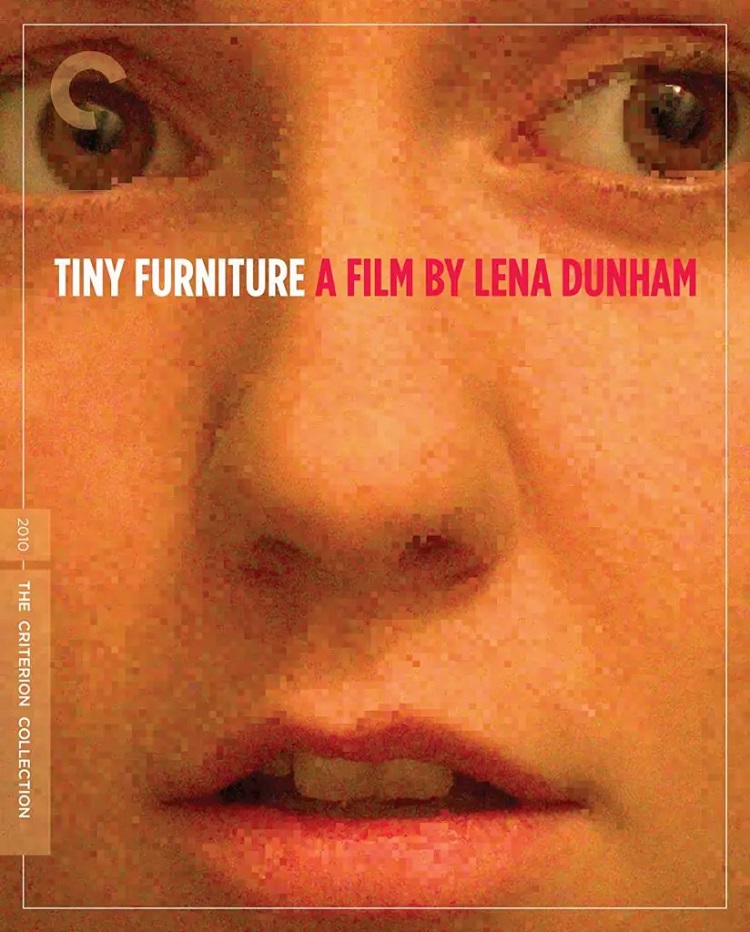
Written by handyguy
Nearly every character in Tiny Furniture is annoying, irritating, exasperating – and that’s exactly what makes the film so funny and engaging. Lena Dunham’s movie is the epitome of Semi-Autobiographical Micro-Budget Mumblecore: made for the astonishing sum of $45,000, shot largely in her mother’s apartment, with her mother and sister playing her mother and sister, and Dunham most certainly playing a version of herself. But it’s mumblecore with a difference: it’s not only beautifully shot in widescreen HD (by Jody Lee Lipes), with each scene exquisitely composed and lighted; it is written and performed in a distinctive comic voice. And Lena Dunham accomplished all this two years ago, at the preposterously precocious age of 23.
Dunham plays Aura, who has just returned home to Manhattan from college in Ohio, with ambitions to be a filmmaker but no real idea what to do next. She is exasperated by her overachieving teenage sister and her artist mother – and they are plainly exasperated by her, too. The interaction among the three of them is simultaneously laugh-out-loud hilarious and uncomfortable, even painful. (The mother’s art-project photographs of miniature objects give the film its title.) There’s a tender yet barbed not-quite-a-reconciliation scene between mother and daughter at the end that’s a gem.
Other scenes show Aura with her “friends,” who rarely display much evidence of actually caring abour her, at least not in any conventional way. This is particularly true of the two young men for whom she harbors romantic/sexual feelings. They treat her very callously (and in addition, she has just had her heart broken by an off-screen college boyfriend when the film begins), and these scenes are designed to make you uncomfortable.
As Paul Schrader says in a very insightful commentary included in the DVD: “This girl is so self-involved, always talking about herself, to the point where you just want to slap her. And yet the film is so very well done” that it disarms you. Dunham’s performance is remarkable: she has created this film that could fairly be called self-indulgent, and she plays an utterly self-indulgent character, yet she does it with charm and grace. It’s a very difficult balancing act: Aura is a bit deluded, not quite honest with herself or with others; Dunham fully illuminates that while gaining the audience’s sympathy and making us laugh.
There’s not much of a plot, just a series of amusingly quirky/whimsical situations involving the fate of Aura’s hamster, the “You Tube famous” guy she meets at a party and invites home, her ridiculous yet charismatic “best friend my whole life” Charlotte (with a British accent of dubious authenticity that makes her every line funny), her boring job at a restaurant, the handsome chef who charms her, uses her, discards her. The only half-developed characters and situations are the weakest aspect of the movie, making it sometimes shallow and artificial. But there is definitely a structure, an arc (though thankfully not of the conventional Hollywood kind), and the just-slightly-surreal stylization of everything is quite an accomplishment.
The Criterion DVD edition of Tiny Furniture is a bit much: two discs, crammed with extras, suggesting that someone might mistake this charming little film for a masterpiece. The high-quality transfer is really lovely. And some of the too-numerous extras are enjoyable: They include an entertaining, mutually admiring half-hour conversation between Dunham and Nora Ephron, as well as the aforementioned Paul Schrader piece, which amounts to an incisive, scholarly review of the film.
It’s the second disc that seems too much, but it does serves a purpose: It includes Dunham’s pre-Tiny Furniture oeuvre: the short feature Creative Nonfiction, which is an appalling mess, and four shorts that became popular on YouTube, which are crude but entertaining. Comparing these very rough beginnings to the accomplished Tiny Furniture, you can see how quickly Dunham is developing both as a writer and a director. (She already had the acting chops in the earlier films.)
(There is also a one-disc Blu-ray edition including all the same features. I haven’t seen it, but I assume it’s even more delightful to look at than the high-quality DVD.)
The success of Tiny Furniture gained Dunham an HBO series, Girls, which premiered a couple of weeks ago. There are many similarities to Tiny Furniture, down to several members of the supporting cast (and an even more disturbingly churlish boyfriend). It’s a bit slicker and a bit less wacky/surreal, neither of which I would count as an improvement. (The series also lacks the distinctive visual grace of Tiny Furniture.)
But Girls confirms that Lena Dunham is a talent to reckon with. It’s been reported that quite a few people find the film and the TV series annoying but not charming, in part because the characters are rich and bratty. This is so obviously the deliberate point of the material that you have to wonder what else is provoking these criticisms.
Dunham’s not-a-thin-model body is atypical for a young female performer playing a lead, and she frequently appears in her underwear, or less, in nearly all her work. This has been championed by some as empowering and liberating for real-life non-supermodel women. Is it also part of what makes some people uncomfortable? Or is it just that they resent Dunham’s success? If so, for shame. Comparisons to Woody Allen (and Nora Ephron) are not off-base. We should all be looking forward to a lot more Lena Dunham movies.